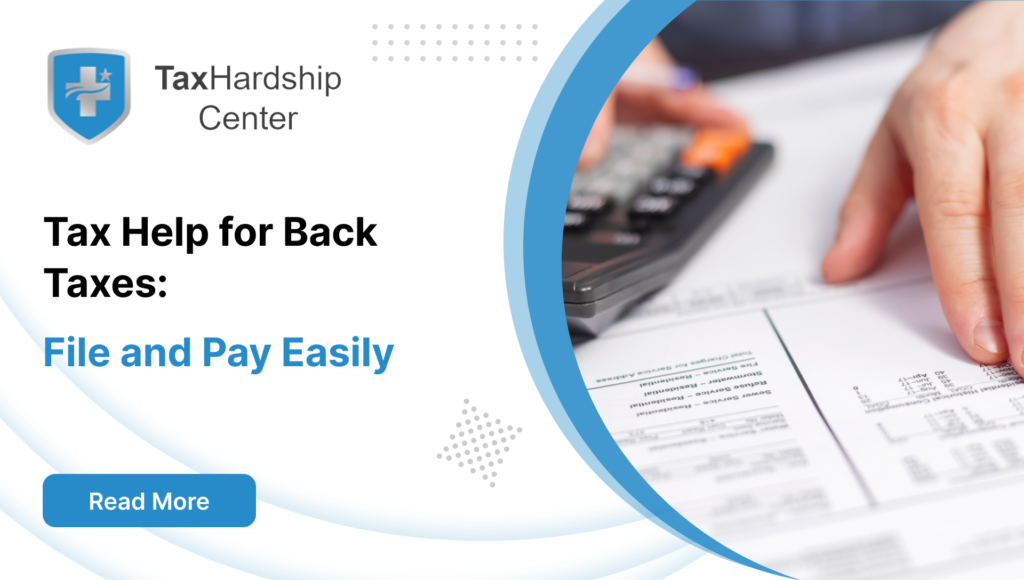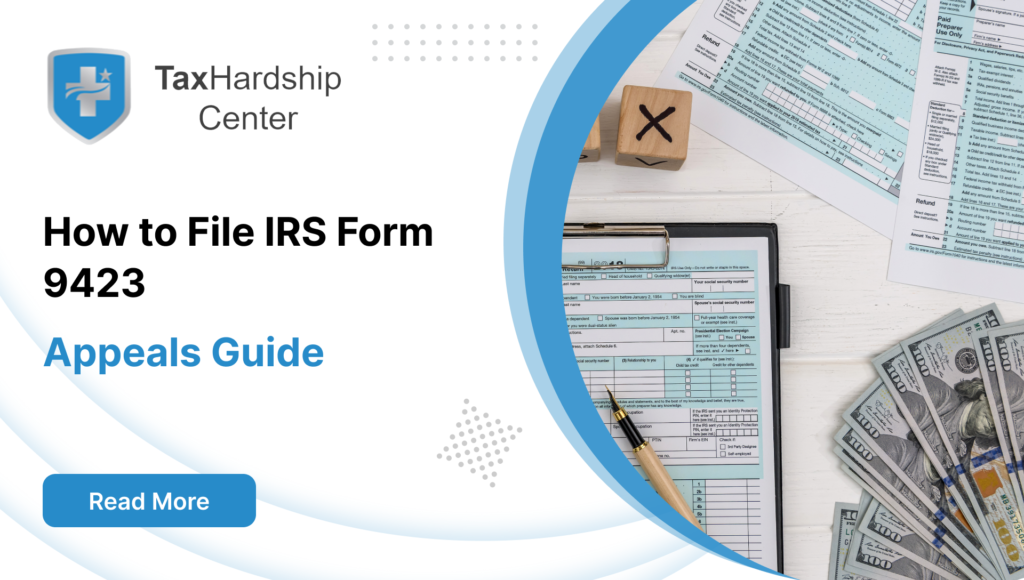Introduction
Dealing with Internal Revenue Service (IRS) debt can be a daunting and stressful experience for any taxpayer. Still, if you’re a resident of the Golden State, there are various state-specific options and strategies at your disposal that could help you navigate the murky waters of tax debt. We’ll delve into the unique tax relief programs, negotiation tactics, and legal avenues Californians can leverage to manage and potentially settle their outstanding tax liabilities.
As America’s most populous state with its complex tax regulations, understanding California’s particular tax laws is crucial for effectively addressing IRS debt. Whether you’re an individual or a business owner, knowing your rights and the available state-specific resources can make a significant difference in finding a feasible resolution. Let’s explore the intricacies of IRS debt resolution in the context of California’s tax landscape, including programs like the Offer in Compromise, installment agreements, and the potential for penalty abatement.
Experience Stress-Free Tax Solutions with Tax Hardship Center!
Discover unparalleled peace of mind with the Tax Hardship Center, your trusted ally in navigating the complexities of tax season. Bid farewell to sleepless nights and tax-related stress as our dedicated team of experts simplifies the process, ensuring precision and care at every step.
What sets us apart?
We offer a 14-day money-back guarantee, which speaks to our confidence in alleviating your tax worries; if you’re unsatisfied, we’ll refund your investment. Take a free consultation to explore how we can tailor our services to your needs. With nationwide coverage across all 50 states, the Tax Hardship Center is your beacon of clarity in the financial fog, making your tax journey worry-free and guaranteed.
Continue reading…
So, whether you’re facing a mounting tax bill, struggling with a lien or levy, or simply seeking to stay proactive about your tax health, this blog post will provide you with the knowledge and tools necessary to take control of your situation.
Exploring the Concept of ‘Offer in Compromise’
How does Offer in Compromise work?
The Offer in Compromise (OIC) program is an initiative by the IRS enabling taxpayers to settle their tax debt for less than the total amount they owe. This program, often dealing with urgent tax-related matters, is specifically designed for individuals who can only fully pay their tax liabilities if they cause financial hardship. The IRS and even state departments like the CDTFA carefully scrutinize your income, expenses, ability to pay, and asset equity to determine whether to approve an OIC proposal. The proposed amount should represent the most that the IRS can realistically collect within a reasonable period. This is often considered a way to avoid more severe consequences such as tax evasion penalties. During the negotiation period, IRS collection activities are generally suspended, granting relief from bank account levies, tax liens, or wage garnishments.
Criteria for Eligibility
Only some qualify for an Offer in Compromise. To be eligible, you need to meet specific minimum qualifications:
- You must have filed all required income tax returns.
- You must be current with all estimated tax payments and federal tax deposits.
- You must agree with the total tax liability (tax debt) you owe.
- You must not be in an open bankruptcy proceeding.
- If you’re an employer, you should have made tax deposits for the current and two preceding quarters.
- Your offer must align with the best interests of the state.
Your eligibility is also based on:
- Your ability to pay.
- The value of your assets.
- Your current and future income and expenses.
- Potential changes in your circumstances in the future.
Roles of a Tax Attorney
Tax Attorney vs Accountant – Who Can Help More?
Both tax attorneys and certified public accountants (CPAs) can assist you with tax issues, but the right choice depends on your specific needs. Maintaining the accuracy of your tax affairs is critical, and both professionals can offer some form of help here.
Tax attorneys, for instance, specialize in tax law and are legal experts with an in-depth understanding of federal and state law. This enables them to represent clients facing an IRS audit, litigation, or criminal charges for tax fraud. Their legal privilege ensures a protective umbrella for any confidential exchanges.
On the other hand, CPAs are masters in financial planning, preparing and filing returns, and providing advice on how to make tax savings. They, too, understand the tax code in great depth, but they need to possess the authority to provide legal counsel or hold onto the client-lawyer confidentiality privilege.
In conclusion, if routine tax planning, return preparation, and filing are your needs, a CPA is likely your go-to. But, a tax attorney’s service would be more fitting for legal issues, complex tax battles, or if you need to negotiate with the IRS —perhaps in cases related to innocent spouse relief or other resolutions.
Understanding California Tax Debt Forgiveness
What Does California Tax Debt Forgiveness Mean?
California Tax Debt Forgiveness refers to programs established by the California Franchise Tax Board (FTB) that allow taxpayers to settle their debt for less than the total amount owed, similar to the IRS’s Offer in Compromise. This program, known as an FTB Offer in Compromise, is an agreement between the taxpayer and the FTB (also known as my FTB), where the taxpayer agrees to pay a certain amount that realistically reflects their ability to pay. It’s advised by the California Department of Tax to control this via their MyFTB account.
However, this should be distinct from penalty abatement, another service available from the FTB. Although not all IRS OIC cases successfully translate into FTB OIC cases, it’s critical to note that while most FTB debt cases are often accompanied by IRS debt, the IRS often settles and not the FTB.
Note: California tax debt forgiveness should not be confused with temporary tax amnesty, which allows taxpayers to repay taxes without penalties.
Requirements for CA Tax Debt Forgiveness
Qualifying for California Tax Debt Forgiveness is challenging. However, navigating towards this destination becomes a bit easier if you meet specific criteria:
- You’ve continually received notifications of unpaid tax debts or experiencing significant financial hardship.
- Despite all efforts, attempts to recover the owed tax have failed.
- You’re expected to be unable to pay in full shortly.
- The tax amount you owe is accurate.
- You are not involved in any ongoing bankruptcy proceedings.
- You must have submitted all necessary income tax returns.
Another destination that’s important to consider in this context is age. Young individuals in California are less likely to get their requests approved than seniors. For example, a 20-year-old who owes $10,000 to the FTB. Their plea for tax forgiveness may run into established complications due to their age.
Step-by-Step Guide to Apply for California Tax Relief
Assessing Your Eligibility
Before applying for tax relief, you must assess your eligibility. One way to effectively evaluate your eligibility is by using the Offer in Compromise Pre-Qualifier Tool, which can be likened to a translation application tool. Just as a translation application tool translates and clarifies a foreign language, this tool guides you through a series of questions about your financial status, effectively translating your financial conditions into an understandable format for the IRS. These include details on your income, assets, expenses, and debt.
The IRS then considers various tax strategy consultation factors when deciding your application, such as your ability to pay, income, expenses, and asset equity. The offering amount should represent the most the IRS can expect to collect from you within a reasonable time. Remember that not everyone will qualify for an Offer in Compromise. Similar to the process in a tax strategy consultation, those who do usually face financial hardship, which prevents them from paying their tax debts.
Prepare and Submit your Application
Once you have assessed your eligibility, it’s time to prepare and submit your application. Here are the steps:
- For Individuals: Offer in Compromise Booklet and Application for Individuals (4905PIT). Make sure to attach all necessary transcripts to your application.
- For Individuals with tax debt at more than one agency: Multi-Agency Form for Offer in Compromise (DE 999CA). Proper documentation and detailed transcripts are essential to maintain transparency across agencies.
- For Businesses: Offer in Compromise Booklet and Application for Business Entities (4905BE). Businesses should ensure all relevant transcripts and documentation are included in the application.
If the IRS accepts your offer and you make the proposed payments, any liens filed by the IRS against you may be released, and your debt can be considered settled. Rest assured that during this process, the IRS maintains strict confidentiality of your personal information.
Remember, working with a tax professional when preparing your Offer in Compromise is recommended to ensure you’ve filled out the application correctly and maximize your chances of success. These professionals are adept at navigating detailed transcript investigations and documentation requirements, ensuring you have the best chance at success.
What Happens After the Application?
If Your Offer Is Accepted
If your Offer in Compromise is accepted, you will receive written confirmation from the IRS. Almost like reciting the Internal Revenue Manual verse by verse, this acceptance entails that the IRS concurs with your endeavor to pay a sum lesser than your complete debt.
Once your offer is accepted, you must stick to the conditions of the agreement, like a favorite verse. The IRS will assign your nonrefundable payments and fees to the tax liability. You must then pay off the remaining balance by the agreed deadline. Payments can be executed in a one-time lump sum or periodic installments.
If your offer has no action taken by the IRS within two years of receipt, it is accepted by default— almost like reading a verse with two lines, the first line being the offer and the second acceptance.
Remember that upholding all tax obligations is pivotal even after your offer’s acceptance. This comprises filing all compulsory tax returns and making all required payments for the following five years, at the minimum—this is your new verse to live by.
If Your Offer Is Rejected
If the IRS rejects your Offer in Compromise, don’t despair—you have recourse options. Upon receiving the rejection, the IRS provides detailed reasons for their decision—one of which could be a belief in your capability to pay more than you’ve initially offered. Analogous to tweaking keywords for a Google™ search to get more precise results, consider revising your offer in such situations.
You can also appeal the IRS decision within 30 days from the rejection letter’s date using IRS Form 13711 (Request for Appeal of Offer in Compromise), similar to how the Franchise Tax Board (FTB) uses the Google™ translation feature for general information provision on their website.
Consequences Of Not Paying Taxes
Can the IRS Seize My Property Because of Tax Debt?
Yes, the IRS can seize your property if you owe back taxes and fail to arrange payment. Knowing that the most common method isn’t a physical seizure but a levy is critical. This means the IRS can take the money in your bank account or your wages directly to pay your tax debt.
Also, if the owed amount crosses $51,000 and the IRS has already tried to recover the money using a tax lien or levy, you may face limitations on your passport privileges. Only renew your passport and travel abroad once the tax debt is resolved.
Are Taxes Dischargeable in Bankruptcy?
Yes, in certain circumstances, taxes may be discharged in bankruptcy. However, this process is complex, and specific conditions must be met. For instance, the tax debt must be related to personal income tax and be at least three years old. Tax returns must be filed at least two years before bankruptcy, and the tax assessment must be at least 240 days old.
In California, “excise taxes,” which reflect operating business privileges in the state, are dischargeable. However, “trust fund taxes,” such as most sales or payroll taxes, are non-dischargeable.
Remember that seeking a bankruptcy discharge requires professional guidance from a tax attorney to ensure your case qualifies and is handled appropriately.
Tax Hardship Center: Unburdening Your Tax Journey, Guaranteed!
Tax complexities need not be a labyrinth of worry, thanks to the Tax Hardship Center—an unwavering beacon of clarity in the financial fog, committed to ensuring your tax journey is nothing short of worry-free.
Why Choose Tax Hardship Center?
- Hassle-Free Assistance:
Bid farewell to sleepless nights and tax-related stress. The Tax Hardship Center simplifies the complex. Our expert team dedicates itself to guiding you through each step, addressing your tax concerns with precision and care.
- 14-Day Money Back Guarantee:
We’re so confident in alleviating your tax worries that we offer a 14-day money-back guarantee. If, for any reason, you’re dissatisfied, we’ll promptly refund your investment. Your peace of mind is our paramount concern!
- Free Consultation:
Are you eager to witness the transformation of your tax experience? Book a free consultation now! Our team will evaluate your situation, answer queries, and provide tailored insights at zero cost.
- Nationwide Coverage:
Regardless of your location within the United States, the Tax Hardship Center has you covered. Serving all 50 states, our commitment to excellence transcends geographical boundaries. Wherever you reside, count on us to deliver expertise to your doorstep.
FAQs
Can I negotiate with California Collection Agencies myself?
You can negotiate with California Collection Agencies; you are within your rights. However, negotiating tax debts effectively usually requires a deep understanding of tax laws, knowledge of how the tax system works, and strong negotiation skills. It’s also important to be aware that the process can be complex. Hiring a California tax attorney in these situations can be beneficial as they can guide you through the process, negotiate on your behalf, and help protect your rights. Remember, the playing field is not tilted in your favor, hence the need for an expert.
How long is California required to Pursue Unpaid Taxes?
The Franchise Tax Board (FTB) usually has 20 years to collect unpaid taxes in California. This time frame is known as the statute of limitations. The 20-year period starts from the date the tax is due or when a final tax liability is assessed, whichever is later. However, certain actions like bankruptcy proceedings, litigation, or an offer in compromise can extend these 20 years. Getting professional advice is crucial if you’re nearing the end of the collection period, as navigating the rules can be complex.








